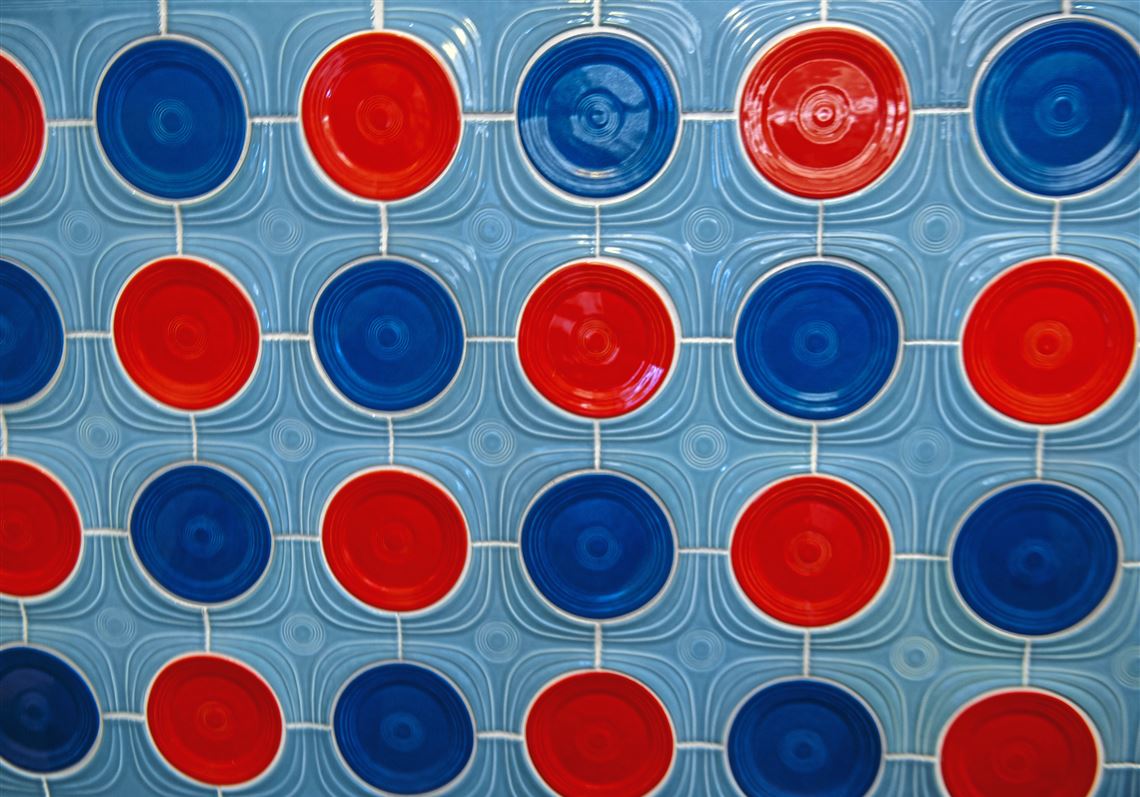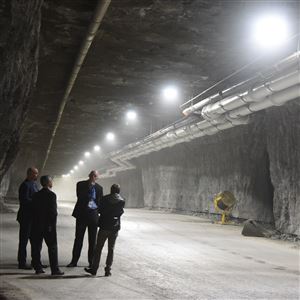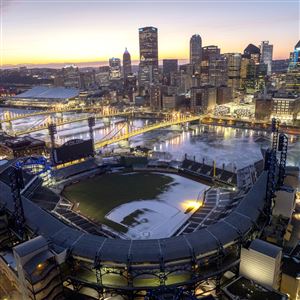It’s funny how things work out. Don Cella always thought he would be a developer like his father, but his hobby ended up being his livelihood.
“He loved taking pottery classes in high school and thought it would be a retirement project,” says his sister, Angela Arena.
Now brother and sister run Limelight Tile & Ceramics in the Strip District. He is the owner and operator, and she is marketing and sales coordinator. The family owned business began when their father, Don P. Cella Jr., bought tile-making equipment at an auction.
What really gave Limelight a colorful jolt was a partnership several years ago with Fiesta Tableware Co.
Originally made by Homer Laughlin China Co. in Newell, W.Va., Fiesta has brightened kitchens since 1936. Cella began talking with its manufacturer shortly after Limelight opened in 2014.
“I had reached out to what was then Homer Laughlin to meet with one of their ceramic engineers to talk about the process and different production-related questions,” he said.
At the end of the tour, Cella was told to contact Rich Brinkman, vice president of sales and marketing for Fiesta.
“He was looking for someone to make tiles, and we went back and forth about for a year and a half before we decided to do it,” he recalled.
Limelight (limelighttile.com) produced its first Fiesta tiles in 2017. Last year, Fiesta Tableware Co. was created and is no longer affiliated with Homer Laughlin.
The dinnerware maker had to approve the process and glazes Limelight uses to make Fiesta tile.
The tiles are made in a variety of shapes and sizes, including the Circle and Cross pattern often used in kitchen backsplashes. The field tile comes in 3 by 6 inches, 6 by 6 inches and 4 by 8 inches.
One popular tile, available in 6 by 6 inches ($20) and 8 by 8 inches ($25) bears the “Dancing Lady” Fiesta logo.
Fiesta tiles are hand-cut and produced in a multi-step process that is very time-consuming.
“Being a handcrafted tile, the price point is higher than tiles you would find in a box store,” Arena explained.
For example, the 3-by-6-inch field tile costs $48 per square foot. Corner tiles measuring 2 by 2 inches are $6 each.
At Limelight, the design is pressed into moist clay with a machine that contains the Fiesta mold. The next day, workers hand-trim each tile and allow them to dry for 2-5 days. “The drying time is dependent on the time of year,” Cella said.
The tiles are then fired in a kiln for three days and glazed. After glazing, the tile goes back into the kiln for three days.
“From beginning to end if we really had to push something out quickly, the fastest would be about two weeks,” said Cella.
Limelight is capable of doing fairly large runs of 3-by-6-inch Fiesta field tiles.
“That is probably the most popular size,” he said.
As Fiesta dinnerware collectors know, the company comes out with new colors each year and also retires some colors. That can be problematic if a buyer is seeking a color that is no longer produced.
“We do have some of the more popular retired colors as well as all the current ones,” Arena said.
Some of the most requested retired colors are Peacock, Sapphire, Sage and Marigold. “We have them,” she noted.
Fiesta is different than the other tile Limelight makes for residential and commercial customers.
“We usually deal with contractors and designers,” Arena noted. “Fiesta has been a different experience for us because we are often working directly with the consumer.
“It’s a lot of fun.”
Patricia Sheridan: psheridan@post-gazette.com.
First Published: July 19, 2021, 10:00 a.m.
Updated: July 19, 2021, 11:52 a.m.

















